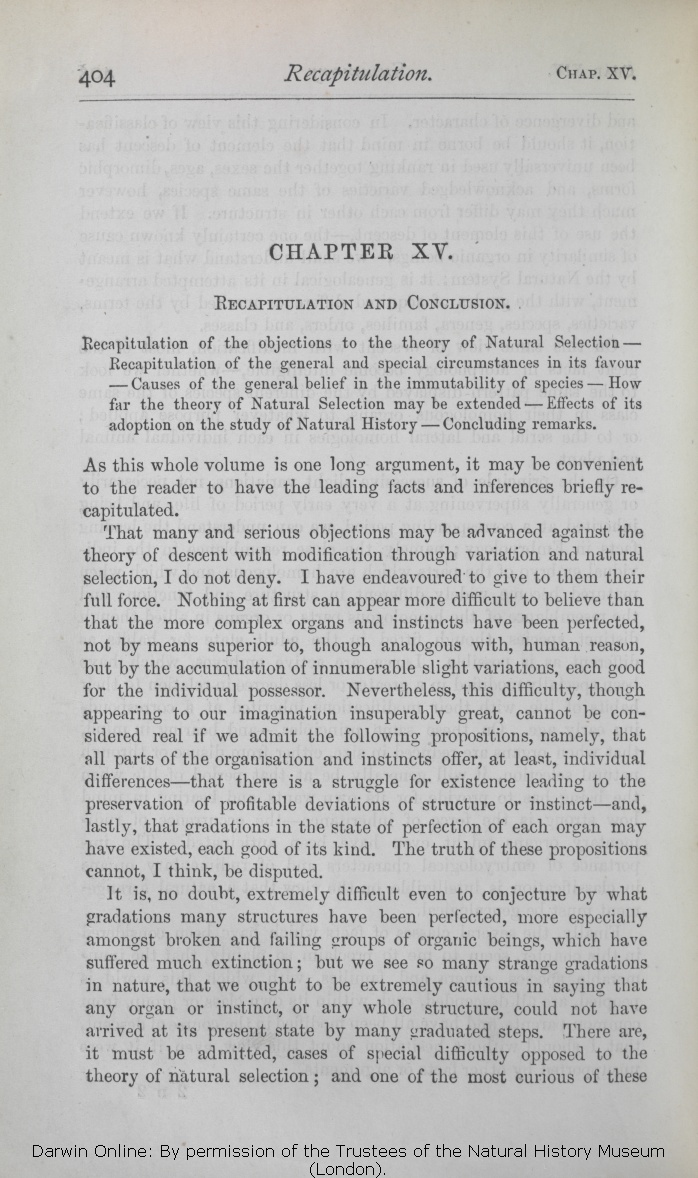That many and
serious | serious 1860 1861 1866 1869 1872 | | grave 1859 |
| variation and natural 1872 |
| natural 1859 1860 1861 1866 1869 |
| ..... 1869 1872 | | should 1859 1860 1861 1866 |
| namely, 1861 1866 1869 1872 | | namely,— 1859 1860 |
| all parts of the organisation 1869 1872 |
| gradations in the perfection of any organ or instinct, which we may consider, either do now exist or could have existed, each good of its kind,— that all organs 1859 |
| gradations in the perfection of any organ or instinct which we may consider, either do now exist or could have existed, each good of its kind,— that all organs 1860 |
| all organs 1861 1866 |
| offer, at least, individual differences— 1869 1872 |
| are, in ever so slight a degree, variable,— and, lastly, 1859 1860 |
| are, in ever so slight a degree, variable— 1861 1866 |
| ..... 1869 1872 | | each 1859 1860 1861 1866 |
| deviations 1869 1872 | | deviation 1859 1860 1861 1866 |
| instinct— and, lastly, that gradations in the state of perfection of each organ may have existed, each good of its kind. 1869 1872 |
| instinct. 1859 1860 |
| instinct— and, lastly, that gradations in the perfection of every organ may have existed, each good of its kind. 1861 1866 |
|
It is, no doubt, extremely difficult even to conjecture by what gradations many structures have been perfected, more especially amongst broken and failing groups of organic
beings, | beings, 1861 1866 1869 1872 | | beings; 1859 1860 |
| which have suffered much extinction; but 1861 1866 1869 1872 |
| but 1859 1860 |
| OMIT 1860 1861 1866 1869 1872 |
| as is proclaimed by the canon, "Natura non facit saltum," 1859 |
| any 1859 1860 1861 1866 1872 | | the 1869 |
| structure, 1869 1872 | | being, 1859 1860 1861 1866 |
| opposed to 1869 1872 | | on 1859 1860 1861 1866 |
|









